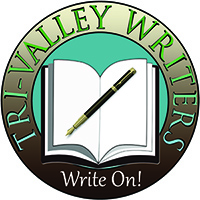 I have a pad of paper on a magnet on the refrigerator for the grocery list. There are stacks of scrap paper by the telephone, and a legal pad on my nightstand for ideas that wake me from a sound sleep. One could believe I am a die-hard devotee of paper as the perfect writing surface, except that I also keep a white board to jot down menu ideas, and my novels have been composed and edited on my computer. Still, when I need to write something quickly, I grab a piece of paper.
I have a pad of paper on a magnet on the refrigerator for the grocery list. There are stacks of scrap paper by the telephone, and a legal pad on my nightstand for ideas that wake me from a sound sleep. One could believe I am a die-hard devotee of paper as the perfect writing surface, except that I also keep a white board to jot down menu ideas, and my novels have been composed and edited on my computer. Still, when I need to write something quickly, I grab a piece of paper.
Most of the time I think more about what I want to write than what I have to write on, but two books on the history of paper have me thinking about how what I write on shapes what I write. The first, The Paper Trail by Alexander Monro, describes how writing in China developed from divination on turtle shells to court histories on bamboo to massive bureaucratic files on paper. The second, Paper by Mark Kurlansky, explores how Europeans ignored paper for centuries after it was available. Then came an explosion of quarrels about politics, religion, science, and just about everything else. Suddenly paper was king, because it was cheaper than parchment and better suited to the printing press, which was better suited to spreading ideas quickly than an army of scribes.
The notes I make on scrap paper are usually short commands – remember this, buy that, return this call. If I want to keep information, I’ll grab a pad of paper or even a bound notebook. With those formats, I generally write in complete sentences, sometimes complete paragraphs. I’m not sure what this says about my character, but I might explore that in a short story someday.

Thanks for buying the book, Lani! Hope you enjoyed it.
Best wishes,
Alex Monro
Yes, I enjoyed it so much I’m recommending it to my book club.